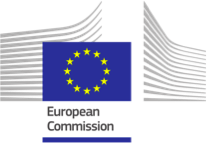Omics integration and Systems biology play a key role in biology research due to major advances in high-throughput technologies and an exponential increase in available experimental data. In the context of the FP7 international training network iMODE-CKD, the Renal Fibrosis Laboratory is organizing a workshop on this topic on Friday afternoon October 2 and Saturday morning October 3, 2015.
European leaders in the field will present their activity and latest methodological and technical developments on different omics technologies, databases, data, examples of systems biology in various fields (cancer, kidney disease) and implementation. The detailed program can be found below.
Open to the scientific community (academic laboratories, private companies, students in biology or bioinformatics), the workshop is free but registration, before September 20th, 2015, is obligatory using the following link.
The workshop will be held at Amphi-Garonne.
Program:
Friday, October 2, 2015
13:15 Welcome
13:30 Omics
13:30-14:00 Ulrich Auf dem Keller (ETH, Zurich, Switzerland): Degradomics
14:00-14:30 Bart Janssen (ServiceXS, Leiden, The Netherlands): Genomics, transcriptomics.
14:30-15:00 Julie Klein (Inserm, Toulouse, France): From peptides to proteins: tools and use thereof.
15:00-15:30 Toby Athersuch (Imperial College, London, UK): Metabolomics (Applications and analytical tools)
Coffee break
16:00 Ontologies, databases, data
16:00-16:30 Robert Stevens (University of Manchester, UK): Ontologies, what for?
16:30-17:00 Ioannis Xenarios (SIB, Geneva, Switzerland): Databases and other resources for systems analysis.
17:30-18:00 Anna Pigeon (Inserm, Toulouse, France): The regulatory challenge of high-dimensional data.
———
Saturday, October 3, 2015
9:00 Systems biology
9:00-9:30 Walter Kolch (UCI, Dublin, Ireland): Systems biology-modeling of signaling pathways.
9:30-10:00 Peter Friedl (Radboud University, Nijmegen, The Netherlands)
Mechanisms of cancer cell invasion and metastasis – exploring in vitro and in vivo imaging models.
10:00-10:30 Francois Radvanyi (CNRS) Molecular mechanisms of bladder cancer invasion and progression.
Coffee break
11:00 Implementation
11:00-11:30 Wenjun Ju (University of Michigan, USA): Using integrative biology approach to study Glomerular Kidney Disease.
11:30-12:00 Robert Stevens (University of Manchester, UK): The quality of method reporting in biology articles.
12:00-12:30 Efthymios Manolis (EMA): biomarkers, omics, the regulatory view.
12:30-13:00 John PA Ioannides, (Stanford University, USA): epidemiology in biomarker development (to be confirmed).
END of WORKSHOP
Parfois, un autre état de santé peut affecter les muscles qui mèneront à la dysfonctionnement érectile. Dans notre génération il ya des médicaments variés pour concerner la démence, l’anxiété ou les dermatoses du cuir chevelu. Parlons de médicaments divers. Qu’en est-il de la vie sexuelle et “Impuissance masculine“? Quelle est l’examen la plus importante que vous avez à étudier sur “Les causes de l’impuissance masculine“? La interrogation très importante que vous moût rechercher est ‘Les causes psychologiques de l’impuissance sexuelle‘. Généralement, cela peut inclure le diabète, une maladie rénale ou un trouble panique d’une certaine sorte. Avant de prendre le Kamagra, dites à votre médecin si vous avez des problèmes avec le sang comme le myélome multiple. Votre médicament est pour vous seulement. Ne le donnez jamais à d’autres personnes même si leurs plaintes sont les mêmes que les vôtres.



